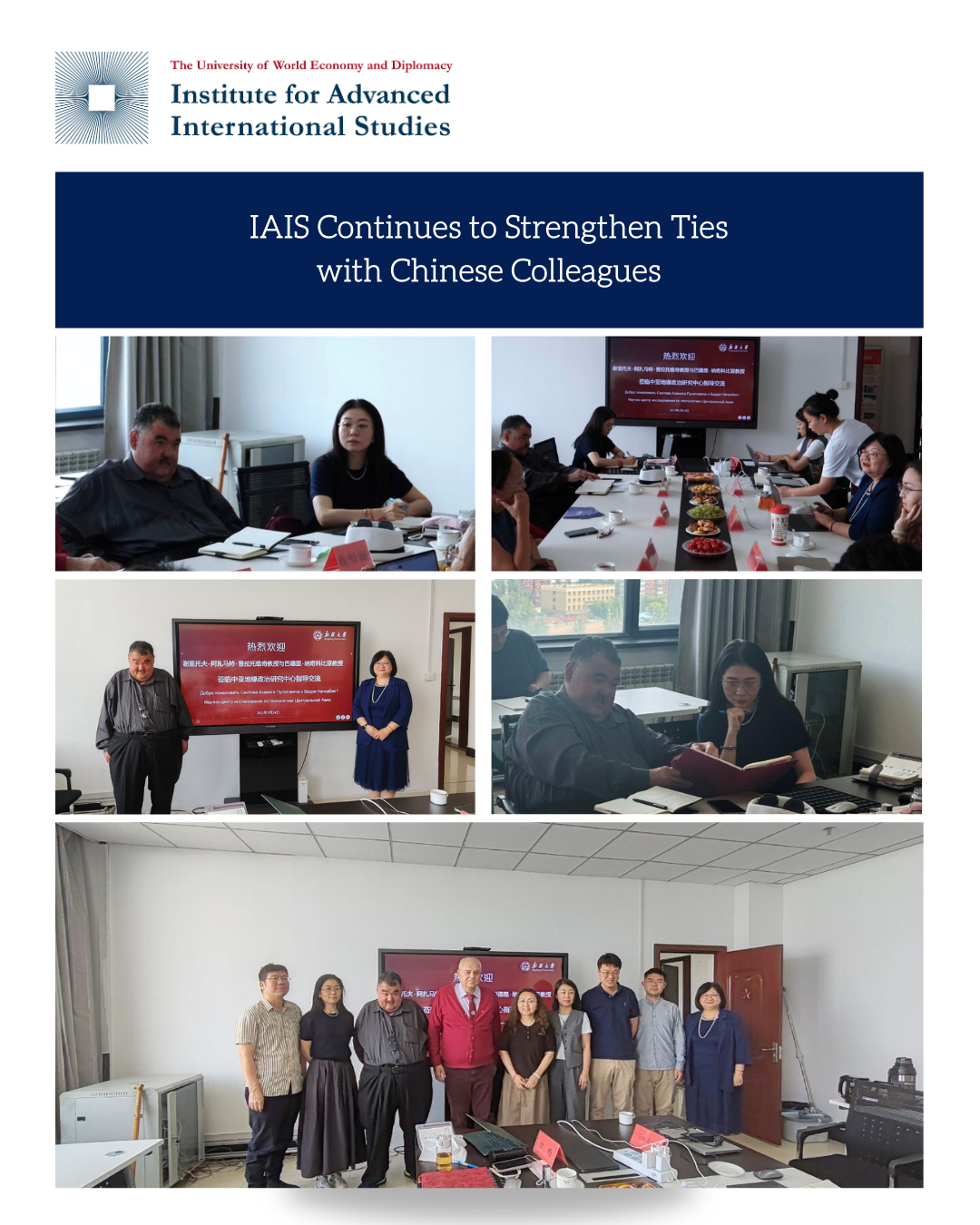
The Institute for Advanced International Studies at the University of World Economy and Diplomacy continues to actively build research ties with colleagues from China. On May 24, Professor Azamat Seitov, Head of the Laboratory of Anthropology and Conflict Studies, took part in a seminar entitled “Prospects for Cooperation between Central Asia and China”, organized by the Central Asia Institute of Xinjiang University.
The event, which took place in a spirit of constructive dialogue, was also attended by the director of the Central Asia Institute, Dr. Han Jun, leading researchers Chen Yali, Cai Ren Zho Li, and Jia Godun, as well as young researchers from Xinjiang, Beijing, and Shanxi universities. Professor Seitov delivered a speech in which he emphasized the importance of deepening the multi-level partnership between Uzbekistan and China in the new geopolitical conditions.
During the discussion, the participants noted the exceptional level of mutual trust between the leaders of the two countries, which serves as a solid foundation for the further expansion of bilateral cooperation. Particular attention was paid to strengthening mutual support on issues of national sovereignty, independence, and territorial integrity, which creates a reliable basis for strategic partnership.
Infrastructure cooperation between Uzbekistan and China, which is an important element of the economic agenda, became one of the key topics of the seminar. It was noted that the implementation of the China-Kyrgyzstan-Uzbekistan railway route project will significantly strengthen the region’s transport connectivity and create new opportunities for trade growth. In addition, the parties discussed the prospects for joint initiatives in the field of educational and scientific programs aimed at training personnel and developing academic exchange.
Young doctoral students asked a number of questions about current challenges and opportunities for research in Central Asia, to which they received detailed answers from the teaching staff of both sides. The seminar took place in an atmosphere of goodwill and mutual respect, confirming the partners’ readiness to further expand cooperation for the benefit of sustainable development in the region.